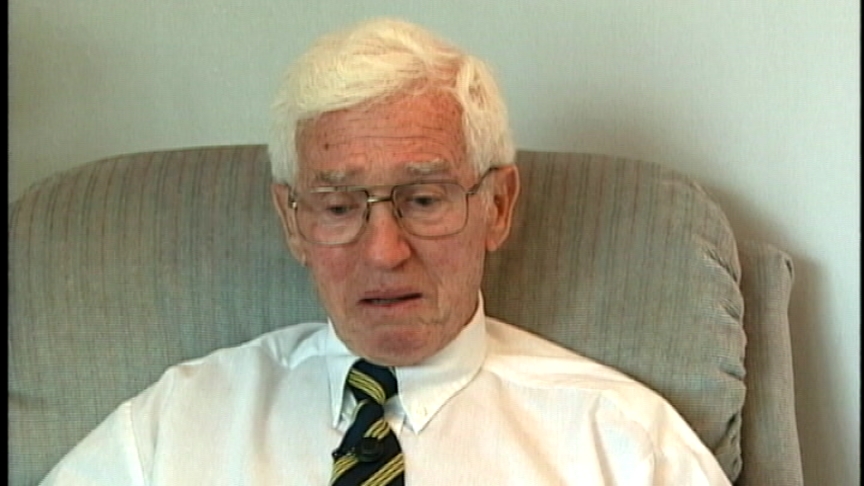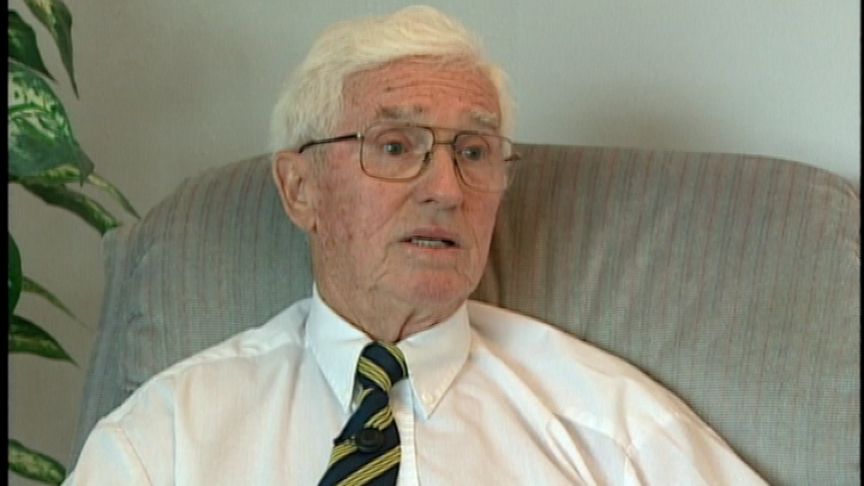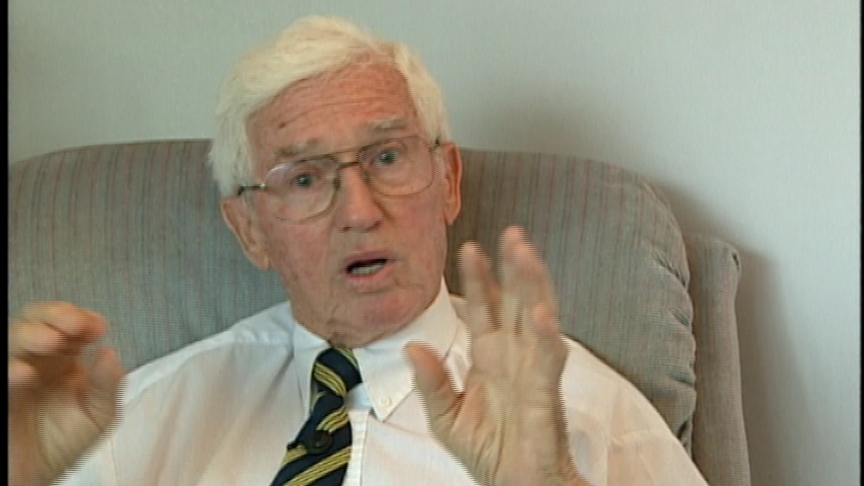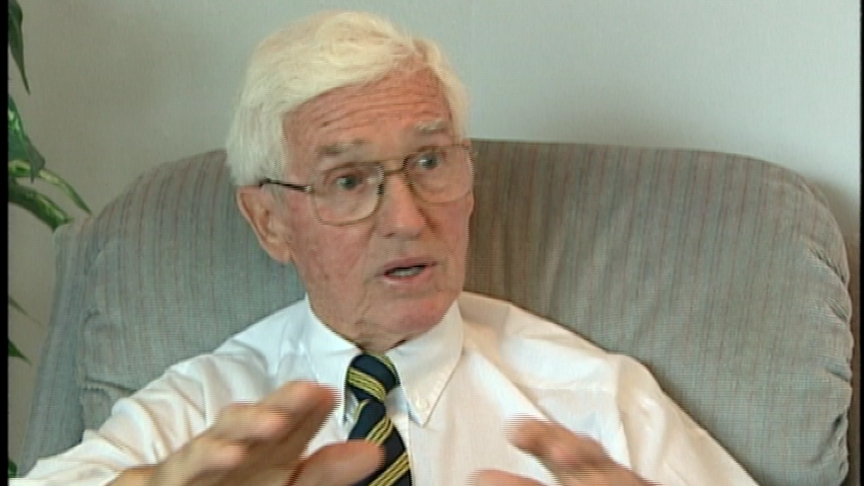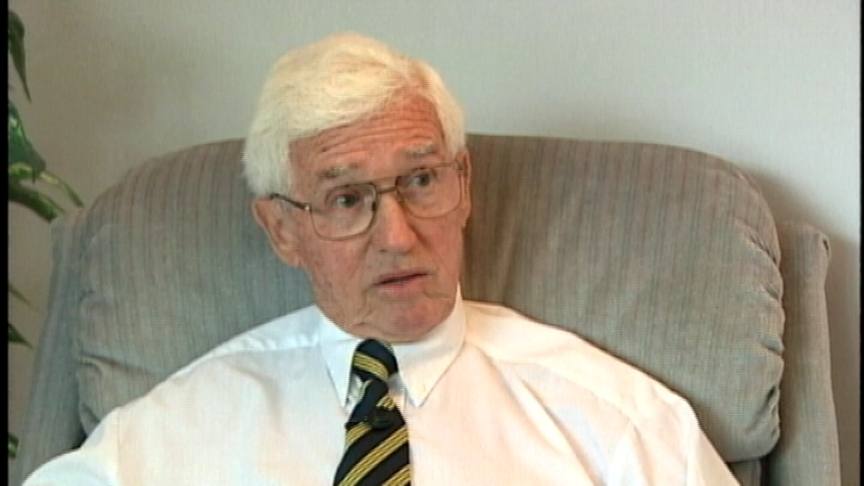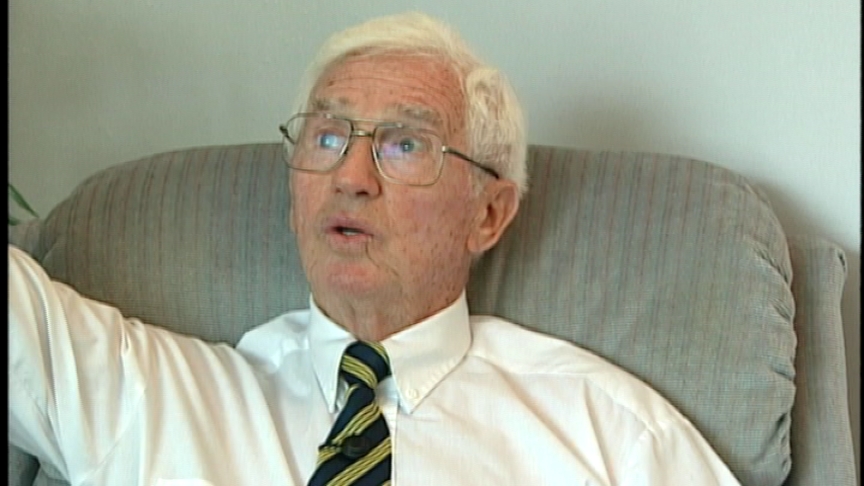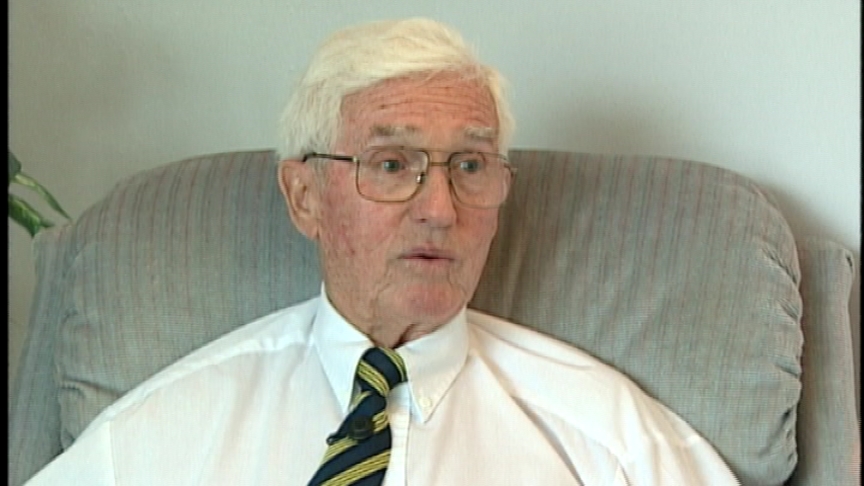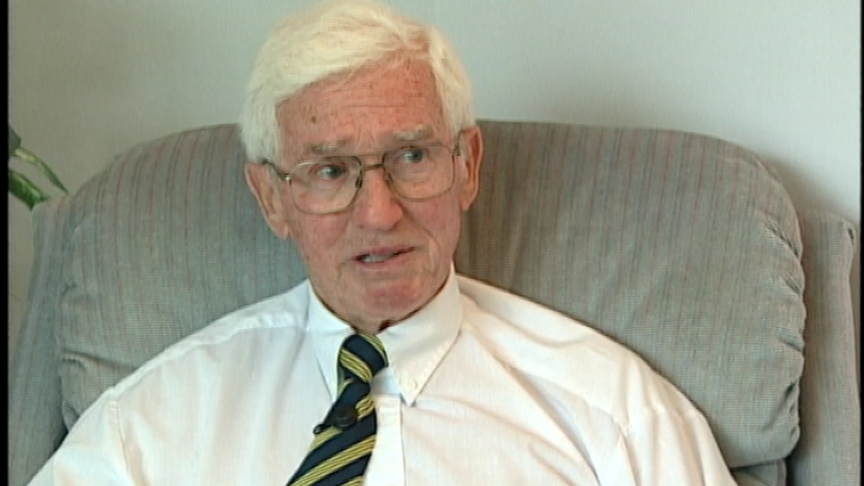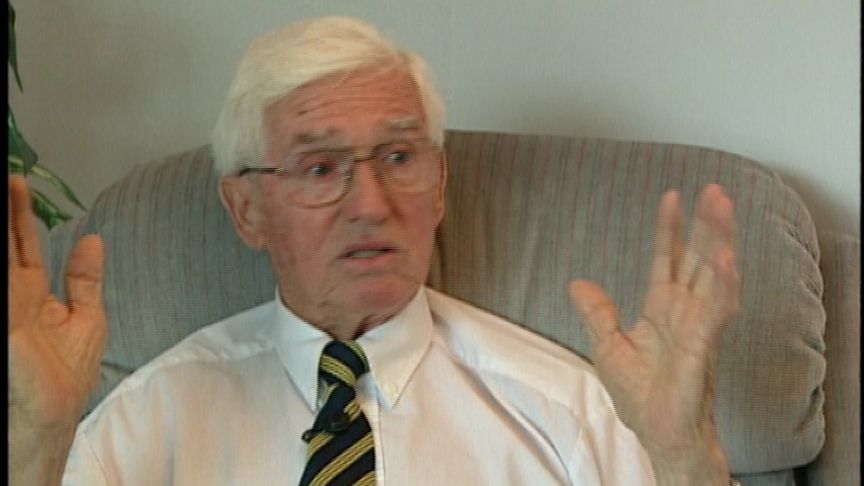And we landed in Vancouver. It was in the afternoon.
And we started to board what they call on to this Awatea,
a New Zealand ship, or an Australian ship, but I think it was
New Zealand. Anyway, they started to put us aboard and there's
some of the fellows kind of didn’t want to get on board the ship,
because all they said was, they had aboard that ship was mutton,
not too good food or something. And some of them refused to get
on and they got off the boat, and I don’t know what happened,
but anyway, as I was going overseas, and I had volunteered to go
overseas, I figured I was gonna go anyway. So we went aboard
and the ship was all fixed up with plywood. Everything was,
beautiful ship, but they had fixed it all up with plywood not to
be spoiled, you know. And fellas, the real fellas that had the
priority living in the ship, like on the upper decks and
everything, was our officers. But we were confined down in the
hold, and we had hammocks to sleep on. Anyway, in the morning,
it was a beautiful morning, we started out and we started away
and the first thing we started to lose sight of shore and we took
off. Now we didn’t know where we were going, and half of us...
Now me, I had never heard tell of Hong Kong. Hong Kong to me was,
was maybe China, I had heard a lot about China, but
Hong Kong, I had never heard about Hong Kong. I’ll tell you
the God Almighty’s truth, I didn’t know nothing about Hong Kong.
Anyway, we left and we figured we were going maybe to Tubruk,
to go and reinforce the English army, the 8th Army or something
but nobody knew where we were going. Maybe the officers, and
I doubt it, because I don’t think they knew themselves where they
were going. Anyway, the first thing I was on guard duty watching
for submarines and I don’t know why because if they had’ve sunk
us we were all drowned anyway, because all we had was a little,
a little ferry boat, more or less, following us with a cannon
welded on the rear end. They called it the Prince Rupert
or something like that, and half of the time we didn’t see it
because it would go down the waves and we wouldn’t see it.
But anyway, we were aboard this troop ship. And this morning
around four o’clock I could see this beacon light shining.
One of the sailors come to me. I said, “What’s that light?”
He said, “That’s Hawaiian Islands, Honolulu.” “Ah,” I said.
“Yes,” he said, “yeah, we’re gonna dock there.” It was on
a Sunday morning. He said, “We’ll be in there about in three
hours, three or four hour time.” True enough, we docked there.
So we went in the harbour and it was marked (inaudible),
something like “Welcome.” Anyway, we went into the harbour
and they tied up, and not far from us was a couple of big
Japanese ships with all those Japanese aboard. And I figured they
must have known that the war was, there was something brewing.
But anyway, we weren’t allowed to get off the boat. So we stayed
on the boat all day. And a couple of those big fat hulu girls
come down on the wharf with their skirts and they danced
around and everything. Some fellas found it funny, others found
it not too funny, you know. We were young, and anyway.
That evening we started off and then we took off again.
And I think we must have been fifteen days before we hit the
Philippines, and then we landed in Manila. And when we landed
in Manila, I’ll never forget, the Americans had three or four
submarines tied up here, three or four tied up there, everything
was tied up, there was like if they weren’t expecting war
or nothing. So anyway, we stayed in the Philippines about a day
and a night and the next day we started off
and we landed in Hong Kong.




